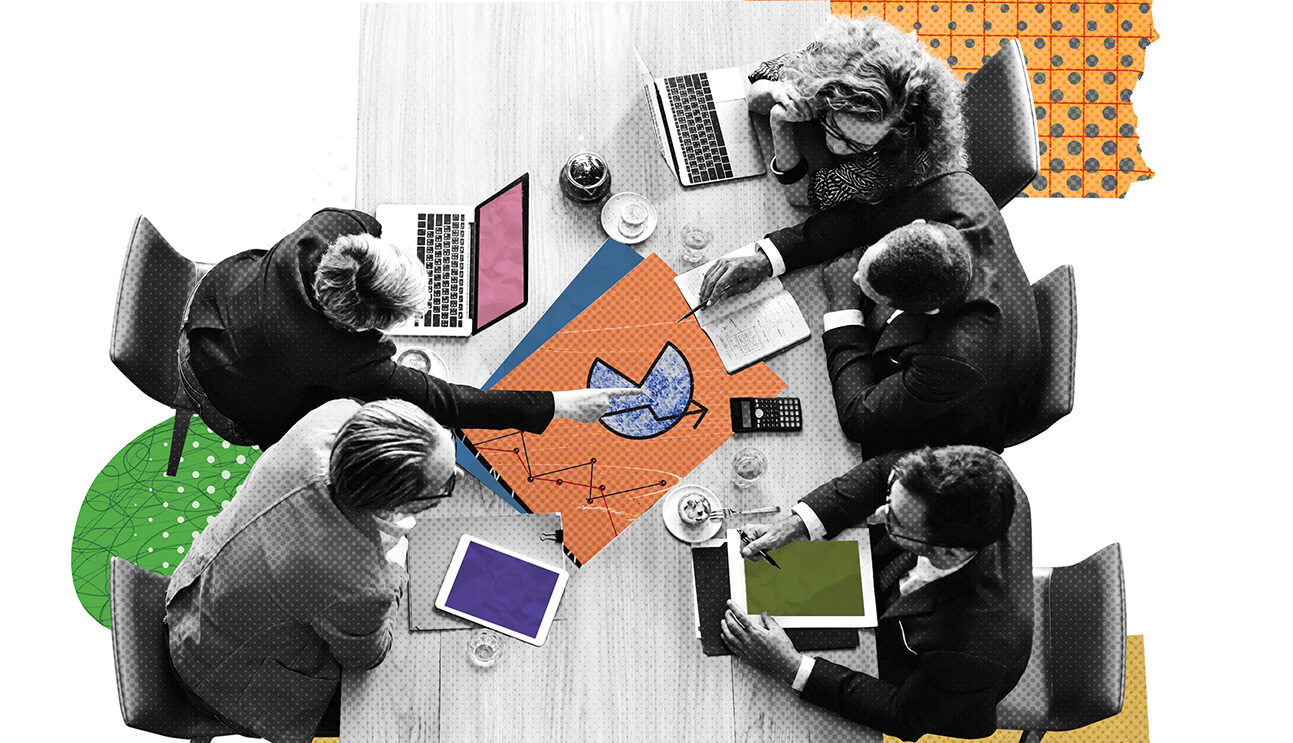AI has become an indispensable tool that brands must utilize to optimize and enhance their online presence. “AI is transforming how companies engage with their audiences, making marketing more intelligent, data-driven, and responsive to individual customer needs,” said an April article by Melissa Russell for Harvard’s Division of Continuing Education.
In the marketing industry, AI can be a transformative force that works with high efficiency. According to the 2024 AI Marketing Report Survey of 1,290 marketers, 70.6% believe AI can outperform humans in key marketing tasks.
For marketers, “AI is not just a tool but a catalyst for innovation and efficiency for both business to business and business to consumer. As marketers, we have to unlock the great value that the technologies bring,” said Dalia Wahba, chair of the AmCham Marketing Committee and chairperson of CID Consulting, in June.
However, the report also showed that 60% of them feared that it could replace their jobs. Notably, concerns about job displacement have nearly doubled since 2023.
The AmCham Marketing Conference titled “Rethinking Marketing: Leading With AI in a Real-Time World,” on June 3, brought together industry leaders navigating the potential of leveraging AI in key marketing practices.
Future with AI
During the conference, Virginie Regis, global head for marketing and communications at Capgemini, a leading global tech services provider, said AI is essential when communicating with different business leaders as it’s crucial to tailor the message to their priorities.
Regis explained that chief information officers may focus on the technical aspect, while marketers and HR leaders care more about business value and outcomes.
In its marketing campaigns, Capgemini used sports sponsorships and AI hand in hand. Sports sponsorships acted as a powerful brand accelerator, serving three main objectives: increasing visibility, enhancing client intimacy through hospitality experiences, and boosting employee engagement and pride by seeing the brand prominently featured on major platforms.
Regis noted that “in B2B services, content such as research papers and reports is essential for credibility and outreach. However, with hundreds of publications and a demand for content in multiple formats like podcasts and videos, maintaining consistent quality is difficult.” Here comes the role of AI in ensuring the quality of the generated content and brand consistency. “This is a game changer in elevating our brand,” she said.
Fadi Abi-Nader, Vice President of One Demand Emerging Markets at Mars Wrigley, affirmed the importance of AI in message personalization for consumers. “For decades, marketing has struggled with the trade-off between personalization and scalability. Creating a tailored message, service, or product for every individual used to be expensive and required massive teams. But with AI, this is now possible. We can deliver deeply personalized experiences at scale, starting from the insight itself and automating the entire journey.”
Abi-Nader noted the “marketing framework needs to change not only because of AI, but because the world has changed.” He explained that currently, traditional marketing is even less trusted by the new generation.
Influencer marketing has become increasingly common, he said, and much of it today is driven and funded by companies. While this raises some questions about trust, it is still perceived as more authentic than traditional marketing. That’s because traditional marketing is usually seen as purely paid and impersonal, whereas influencer content feels more relatable and genuine.
For Ahmed Salama, chief technology officer of Microsoft Egypt, AI has multiple uses, including sentiment analysis that enables the brand to know what people say about it on social media
This, in turn, improves the accuracy of churn prediction. “I think it would be really nice to know if my customer will be churning in the coming few months or in the coming year,” said Salama. “If they’re churning, I need to take some action to make sure they’re not churning.”
He said data is the fuel of AI. “Once I have data that is ready to be used in my AI engine, I can get magical stuff.” Additionally, AI aids in data storytelling, yielding meaningful outcomes from the data and insights.
Salama pushes for skill development in AI. “If you don’t leverage AI today, I’m afraid that you might be redundant because everybody’s using it, augmenting his or her skills to the next level. So if we’re not leveraging AI, we will not be relevant to this job market,” he said.
Rachid Maalouli, business executive officer of Nestlé Waters, thinks one problem is “humans still like to believe that they are the master creators. They are from a creativity perspective, from an artsy perspective.”
In 2022 and 2023, Nestlé started leveraging digital tools, advanced analytics, and AI. Maalouli said Nestlé’s business has five core value pools: generating demand through sales and marketing, enabling demand through marketing operations, product creation, product delivery, and ensuring operational excellence.
Nestlé has identified AI tools and AI agents at every key value pool, enabling the brand to enhance, amplify, and scale its capabilities. “AI has become a natural extension of our business, seamlessly supporting our digital transformation journey,” he noted.
Storytelling
Dave Krugmann, photographer and Founder of ALLSHIPS, an online creative community, said, “Technology has empowered artists and creators to express themselves more effectively than ever before.
While the internet has opened new doors for artists, Krugmann believes the social internet, where people can interact, enables artists to build strong, interconnected communities online. “These communities serve as support networks, helping us create value around the art we want to make and the ideas we want to pursue,” he said. “That interconnectivity is what truly enables us to bring our creative visions to life.”
Krugmann added that social platforms can be powerful tools that allow stories to resonate deeply, fostering genuine engagement and emotional connection across diverse audiences.
“Leveraging AI in content creation as a photographer has placed me at a fascinating place,” said Sam Horine, photographer and blogger, adding that AI’s practical benefits are clear as it now powers autofocus in cameras and tracks eye movement to make shooting much easier. In the post-production phase, tools like Lightroom have revolutionized the workflow. “What once took hours can now be done with a single click.”
Horine cited important ethical considerations, especially around image generation and its implications, but the impact on efficiency and creativity is undeniable.
María S. Muñoz, founding partner of Maison Pyramid, a global PR and communications firm,
said that what sets her company apart when it comes to brand building is really how it approaches it as a whole ecosystem in a 360-degree way, rather than as a one-time intervention. “Everything we do at MP, from brand positioning to digital narrative, content creation, PR, and events, is deeply rooted in intentional storytelling,” she said.
She explained the human brain is wired for narrative, even in the age of AI. “People don’t remember data points or entries as much as they remember stories,” she said. “At the core of how we build brands lies storytelling, not just as content, but as meaning from our perspective. In today’s saturated and increasingly AI-driven world, the brands that continue to focus on meaning and carry a clear message of their added value to the world are the ones that truly cut through the noise.”
For MP, AI helps in three key areas that significantly enhance storytelling and brand-building work, said Muñoz. The first is pattern recognition, where AI enables the company to understand which content performs well, where it resonates most, and with which audiences.
The second key area is personalization, allowing MP to tailor messages across different channels and audiences with precision and consistency, “turning AI into a tool for mass customization,” she said.
The third area is creative acceleration, where AI reduces the time spent on design tasks like mockups, giving teams more time to focus on strategic thinking and imaginative solutions.
Taimour Othman, design lead and founder of tobrand.co, and founder of #ThisIsEgypt, highlighted that AI tools can help companies maximize their scale and work on four or five parallel projects.
He said AI can work perfectly in the ideation phase, where it can generate attractive storyboards for clients before crafting them with a non-AI tool. In addition, AI reduces the time required for solo production, such as podcast editing, cutting the time from eight hours to just half an hour with a simple tool that automates the process.
“Creators who don’t use AI for their own benefit will be replaced by other creators who are maybe less creative but use AI,” he said.
Despite the huge benefits of AI, a significant challenge persists. Othman noted AI can limit creativity because most language models are trained in a way that tends to guide users through the same sequence of thinking, regardless of the scenario.
Redefining the rules
Ahmed Sharabeya, Global Marketing and Business Excellence Head of EVA Pharma, said, “COVID-19 was a turning point for Eva Pharma, as it began to focus on data about consumers, global trends, and consumer needs.” For EVA, AI has assisted that brand in identifying current trends and anticipating future trends
“We strive to use AI ethically in our work,” said Hoda El-Sherif, CEO of Flavor Republic, a food branding company. She highlighted that “While we recognize that AI tools can enhance efficiency within the agency, we make a conscious effort to involve creatives and talents already in the market. Instead of relying solely on AI, we invite them to use these tools themselves, ensuring they remain an active part of the creative ecosystem.”
In the food industry, El-Sherif said, AI can help generate more innovative and creative recipes. “I believe the power of AI in food and recipe development lies in its ability to challenge what we’ve long accepted as mainstream,” she said.
Notably, “AI is changing that narrative. It empowers chefs to reimagine traditional ingredients and techniques, proving that Egyptian cuisine can indeed stand proudly on the world stage,” El-Sherif added.
AI is instrumental to Carina Wear’s rebranding strategy. According to Deputy CEO Moussa Asfour, “Carina Homewear is capitalizing on a new type of AI to gain insights into consumer behavior. We utilize in-store cameras as human observers who actively monitor and analyze which products customers purchase and which store sections attract the most attention from visitors.”
He discussed the success of such tools, highlighting that 80% of verified buyers — those who visit the branch carrying shopping bags, indicating a clear intent to purchase, end up buying from Carina.
For Asfour, using AI has become an essential skill that all employees should learn. “If you’re AI illiterate, you don’t have a place in my company,” he said.
This article first appeared in July’s print edition of Business Monthly.




